#science and technology studies
Explore tagged Tumblr posts
Text
So, in science & technology studies, one of the words we throw around is "scientization," the act of making something into a science. And, you know, a lot of this is good, or at least neutral: the scientization of medicine; the scientization of cosmology; it means that a field has gotten more rigourous and definitive than it used to be.
But in politics, what scientization often means is that something that should be a policy issue is kicked over to scientists as a means of naturalizing or normalizing it, exempting it from normal political debate, or avoiding responsibility for unpopular decisions. "Oh, we needed to bomb this place because our models said it would end the war faster"; "Oh, we needed to privatize this service because our economists said it would save us money"; etc. And a lot of the debate in the field of science policy is given over to the question of when is it legitimate to kick something over to scientists, and in what contexts, because it's often kind of arbitrary. Like, I think that anyone who takes climate change seriously believes that science needs to inform the response to it, but you can build whatever assumptions you want to into your models, and the math will gobble them up indifferently; and Western liberal governments have overwhelmingly chosen to imagine scenarios where we can just keep doing capitalism because magical new "carbon capture" technologies will probably be invented down the line, and cap-and-trade will probably work perfectly, and anything that might be lost due to climate change can be straightforwardly assigned a monetary value and compensated, and refugees from desertification and rising sea levels will probably just not exist and so on. [Obligatory reminder that Climate Change is way worse than pretty much anyone in mainstream politics is willing to admit]
And anyways, I think that a special case of this "scientization-as-political-bullshit" phenomenon is at play in the field of polling. Like, consider Kamala Harris's entire campaign (or if you prefer, practically any neoliberal politician's campaign anywhere in the world since 2008 or so). This was a campaign where seemingly every decision was kicked over to pollsters. Can't call conservatives weirdos--you might offend moderates! Can't call on Israel to stop bombing Gaza--you might offend moderates! Can't stand up for transgender rights--you might offend moderates! Can't call for single-payer healthcare--you might offend moderates! And so on, and so forth. In every case, it's trying to do politics without being political, and it's doing so by embedding a bunch of incredibly insidious assumptions into models and then calling it science! Like, maybe "moderate" voters would get on board with a ceasefire, or trans rights, or single-payer healthcare, if a prominent politician with a billion-dollar war chest to get her message out fucking tried to make a case for it! Like, remember when the overwhelming majority of Americans opposed gay marriage? I do! I wonder why that changed? Or, for that matter, why courting moderates--as all of these models seem to assume--should necessarily be a higher priority than inspiring disenchanted voting-age adults to turn out at all?
And I worry I'm making this sound like innocent incompetence--it's not. This was done very specifically and very intentionally to foreclose upon discussion of progressive priorities while saying that you're being scientific; while saying that you are, ridiculously, being apolitical when a running a political campaign. And now we have these useless, disingenuous assholes patting themselves on the back and saying that this campaign was never winnable! Because the "SCIENCE" says so!
And meanwhile, you have Donald Trump--idiot nazi bastard thug child of a demon and a swine Donald Trump, cursed be his name--bowling through the political scene like a bull in a china shop, utterly indifferent to all of these fancy-schmancy mathematical models and too stupid to understand them...and winning enormously! Making his own coalition. Because thick as he may be, ignorant as he may be, incurious as he may be, he at least knows one single solitary thing that the Democrats don't: Politics isn't science; it's magic. And you don't get anywhere in magic without the will to power.
#essay#long post#us politics#neoliberalism#science#scientization#science and technology studies#policy#polling
190 notes
·
View notes
Text
I feel like 100 endocrinology papers in I finally have a good understanding of what we as transfeminists mean by "sex is constructed": endocrinology studies start with a subject population already split into "male" and "female" and take this split and how it is made completely for granted. Nobody ever includes in their methods section how they decided which patients were male and which were female - even in papers where this is a relevant question! where reading the text of the paper naturally raises this question! Instead they are just using these social ("received," "unscientific") notions of male and female and then analysing the data along that split. They are using biology to find a possible justification for the existing social categories - not using biology to try to discover "natural" categories, and therefore this biology can fundamentally never prove that sex is a natural dichotomy! That is an assumption, not a conclusion.
To make this more concrete: I believe that the distribution of estradiol levels among non-pregnant adults who are not currently ovulating is unimodal, not bimodal (so not "sexually dimorphic"). But I cant find data to prove this because nobody is publishing a histogram of "human estradiol levels": they only ever publish separate graphs or tables of "male levels" and "female levels"! If biological sex is supposed to be a discovered distinction from differences in hormone levels, why has nobody ever published a study with a histogram of "all adult estradiol levels" in order to point out that this distribution has two peaks, and so we should categorize people based on what peak they're in? Because the existence of two distinct sexes is assumed going into biology, and is not a conclusion of biology.
51 notes
·
View notes
Text
As a type of discourse, science continues to dream of, indeed to strive toward, being a language that corresponds to reality—a language, in other words, that is somehow able to keep itself pure and free of the chaos, derangement, and ambiguity in which other forms of knowledge production increasingly find themselves. While also confronted with modernity’s language crisis, scientific discourse takes the form, or so according to Foucault’s description, of a mode of enunciation or signification whose most fundamental attribute is its aspiration to speak and write without words, without the metaphoric clutter, noise, and messiness of linguistic mediation. Scientific discourse rigorously adopts the ideal and practice of objectivity that, as Lorraine Daston and Peter Galison argue, arose in the mid–nineteenth century as a radical epistemological therapy against the fear of subjective errors, against the threat of subjectivity as errancy. “Objectivity is to epistemology what extreme asceticism is to morality,” they write.
Rey Chow, A Face Drawn in Sand: Humanistic Inquiry and Foucault in the Present [emphasis added]
#mine#rey chow#thinking about the linkeages between scienticism + 'nutrition science' the material aesceticism of diet culture emerging from it#+ the epistemological aesceticism of commitments to objective science#ANYWAYZE#readings#epistemology#science and technology studies
39 notes
·
View notes
Text
Interview on AI / Tech / Poetry / Labor
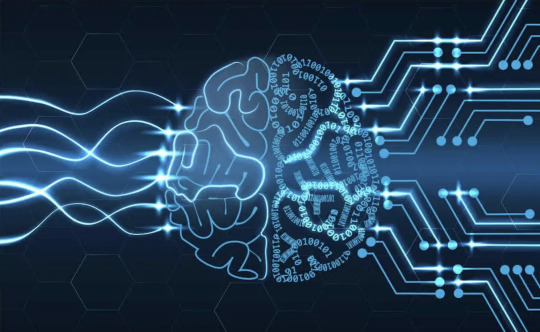
My writer friend Christopher Soto is interviewing me for a piece on poetry, AI, creative writing, and labor. Most of this is going to be cut, so why not post the first draft here?
*
CS: Recently we went on a hike and were talking about the intersection of literary production and artificial intelligence. You described us as part of “the last generation to experience raw human emotion,” can you elaborate on this idea?
JW: Let me clarify that remark. We’ve been cyborgs and pharmacological hybrids for a long time. I don’t think there’s something like an ideal state of authentic humanness, nor do I think that humanness is better than non-humanness. What I’m referring to is the saturation of distractions, which for me reached a crisis point during the pandemic, when my existence was almost entirely mediated by the internet. Just before the pandemic I had ditched my smartphone for almost a year, but got back on it during quarantine since I was always connected anyway. I became palpably aware of how the very rhythm of my being is regulated by technology designed—using behavioral science research—to be addictive by high-jacking the dopamine reward system. I think people dramatically overstate their “will” and “agency” in relation to technology.
Being hyper-connected made me feel my emotional life was becoming increasingly shallow, that I was just being numbly-entertained-toward-death, and pharmacologically adjusted to serenely endure this horrific existential condition while the world literally burns. As a poet, I find it very disturbing. For me, being a poet is not necessarily about the production of poetry, but about the training of a certain kind of consciousness: the dilation of perception and emotional states, the sensitization of one’s antennae, the tuning of one’s soul for a greater awareness of the mystery of existence, its splendors and absurdities.
CS: We have talked about literary production becoming a collaboration with artificial intelligence, so that the writers of tomorrow will essentially be prompt makers and editors, which input prompts into AI and then edit creative works based on the responses provided. What do you think this would mean for the future of literary culture and cultural production?
JW: I think we could soon reach a point where certain types of writing (screenwriting, journalism, newsletters, web content production) and certain para-literary activities (editing, proofreading, researching) could be fully or partially automated. Some say that the new job that will be created as a result of generative AI and Large Language Models (LLMs) like ChatGPT will be “prompt writer.” There may come a day when plot-driven commercial fiction is written by AI with the help of prompt writers.
A lot of writers economically support their literary practice through various forms of commercial writing and editing—some of those jobs might disappear. In recent decades, it’s already gotten so difficult to survive economically as a writer. At the same time, it’s gotten hard to survive in general, given how obscenely high rent is these days. You can’t just scrape by on almost nothing and hope it works out at the end of the month by frantically combing your couch cushions and the pockets of dirty jeans for loose change and cash. You need good credit to even rent a place! On a societal level, art suffers when subsistence costs are high—it becomes more commercially driven, and artists become more “professionalized.”
CS: Do you think that AI will just stay as a mechanism that will help facilitate human writing of poetry but never become “the artist”? I anticipate there will be a shrinking in the distinctions between “the artist” and “the editor.”
JW: I’ve already heard of writers and students using AI to help edit and develop their work, or generate ideas. But I don’t really trust the aesthetic judgment of ChatGPT, ha!
CS: I’m excited to see the mechanics of literary production transform. You are a bit more hesitant, why so? Are there any AI attempts at literature, which you’ve seen already, that feel particularly noteworthy?
JW: Maybe on some deep level I’m a basic bitch who has a sentimental attachment to the way “writing” has been done for nearly 5,500 years. From cuneiform clay tablets to computer keyboards, the writing process has actually changed very little for thousands of years. It was probably ripe for disruption. But I’m ultimately disturbed by the collective effect it will have on language use—the move toward a statistical norm and the treatment of language as purely informational. I had already started to fret about this when Gmail started autocompleting my emails. (ChatGPT is basically a sophisticated auto-complete that convincingly mimics understanding. This is why it “hallucinates” made-up citations and rattles off fake facts.)
Will the weird, jagged, irregular effusions of language gradually be purged as we drift toward the statistical average? I don’t know, maybe I think of it as something akin to language eugenics. Perhaps I’m hopelessly modernist in my view that language is not about transmitting information or even advancing a plot, but the wayward movement of a thought: the sentence as a technology of consciousness, with its serpentine twists and turns, perverse digressions, and rhythmic pulsations.
I’ve seen AI being used in the conceptual writing and art world for a while now. Some of it is cool and novel in a “party trick” kind of way (like the Twitter poetry bots I followed when I used to use Twitter), but I’ve yet to encounter AI work that I’ve been enamored with. I don’t doubt that AI will (very) soon be able to produce really impressive work, and that’s partly because it’s parasitic on past human creativity insofar as it’s trained on vast reams of linguistic data generated by humans.
CS: Can emotion or spontaneity ever be captured by an algorithm? Is there any way in which AI is like the subconscious (making connections between unrelated concepts, juxtaposing words in a way that pleases the ear and mind, using knowledge in unforeseen ways)?
JW: The AI can convincingly mimic emotion. Tell ChatGPT about your problems and you will feel like it really cares, like it’s really listening to you, just like you might feel when you are personally addressed—are interpolated—by the language of advertising written in a voice of concern or understanding.
For nearly a century, artists have used aleatory methods to make connections and generate juxtapositions that get us beyond the limits of human consciousness, whether it’s the surrealist exquisite corpse practice, William S. Burroughs’s cut-up method, or John Cage’s use of the I Ching and other chance methods in his music compositions. AI could certainly be deployed to such ends. Yet LLMs like ChatGPT are designed to be “predictable” in the same way that autocomplete uses probabilities to predict the next word. I think unlocking a weirder side of AI might involve finding ways to break or fuck with it so it doesn’t just generate the mediocrity of the average.
CS: Do you think collaborations between literary artists with artificial intelligence will create a new economy of poetry in the English speaking United States or will it fall into and transform one of the currently existing poetry economies (academia, spoken word, insta poetry)?
JW: How many poets do you know who can support themselves on their poetry alone? I think I know zero. (Maybe Lisa Robertson could count?) Mostly, I know poets who teach in the academy, poets who do astrology, poets who work as editors at publishing houses, poets who have office day jobs, etc. I don’t think AI will change that. Maybe generative AI will create a glut of language that will make poets even more superfluous, ha!
CS: At large, poetry isn’t very lucrative but this doesn’t mean that it doesn’t impact people’s livelihoods still. Why do you think it is important to think specifically about the intersection of poetry and AI?
JW: The thing I love about poetry is its uselessness, the way it is, with a few exceptions, superfluous to capital, difficult to commodify, gratuitous in its insistence on avowing that which has been marked valueless by our hyper-commercial culture. When I think of Sapphic lyrics or Homeric epics, I am reminded that poets once occupied a quite prominent social position, as keepers of history or ceremonial performers. In a culture oriented almost exclusively around lucre, there’s not really a place for poetry. At a dinner party recently I tried to explain “what I do” to entrepreneurs and realized I came across as “quaint,” that what I do will always register as doing nothing to those who use money as a metric to measure the value of a particular activity. Yet at the same time, the intense pressure to perform in our brutally competitive society has generated a hunger for poetry—poetry as a space to preserve the incalculable and restore the part of us that has been destroyed by the soul-crushing dictates of capital.
On a conceptual level, it’s interesting that the things that make poetry so “difficult” and inaccessible to some people—it’s ambiguity, lack of clearness of meaning, context dependency, and attention to the non-semantic register of signification—is also what has made language such a tricky problem for AI developers. Language isn’t simply a system of rules, which is why the statistical approach beat the linguistic rules-based approach in the natural language processing wars.
CS: What would you consider the start of collaborations between artificial intelligence and poets? I’m thinking about Rupi Kaurs using instapoetry as a closed form that is responsive to algorithmic metrics. By responding to the algorithms that make her poetry go viral, she is in effect collaborating with AI, right? I’m also thinking of Kien Liam’s book “Extinction Theory” that was written with the help of search engine responses. Maybe this depends on our definition of artificial intelligence?
JW: I suppose we’re always collaborating with technology. Since I’ve written most of my works longhand (my first draft of Carceral Capitalism was written on index cards), I often think about how the technology of the computer actually changes the texture of my thinking. Technology can also shape the “form” of writing—think of the way that the character limit of Twitter encodes a particular form. We’ve certainly reached a point where writers are not simply “responding” to AI, but AI is directly shaping the written work.
CS: Do you think AI will influence some literary genres more than others and why? I’m thinking commercial genres like popular non-fiction might be the first to change.
JW: I think writing that is informational (popular non-fiction) or plot-driven is ripe for automation. I don’t know why, but whenever I ask ChatGPT to write poetry or imitate the style of a writer with an idiosyncratic style (Virginia Woolf, W. G. Sebald), the results are atrocious. I’m sure it will improve quickly, though.
CS: The Writers Guild of America is currently about to strike, in part over how to renegotiate the use of AI in Hollywood. As a scholar of carceral studies, what do you think is an ethical approach to understanding intellectual property and the likeness of an artist, in the era of AI?
JW: Since I’m fundamentally against private property, I’m against intellectual property as well. Yet AI developers use the “fair use” paradigm to claim they are justified in training their systems on copyrighted works. In my ideal world, we would not need to commodify our works in order to eat, but since we live in a market society, we must pay attention to the question of how writers are going to be able to put food on the table. The fact that generative AI is parasitic on the entire archive of human creativity is fundamentally a labor problem. Should AI be allowed to imitate living writers and artists, and will the imitations be commercialized at the expense of living creators? The legal architecture undergirding generative AI hasn’t been worked out yet, but I’m ultimately in favor of enshrining strong labor protections for living creators.
CS: How is AI going to redefine certain concepts, like originality and plagiarism? I think we have already seen some examples of this in the music industry, such as the AI generated songs using the voice of musicians like Drake. In poetry might it look like someone asking AI to create poems in Shakespearean sonnets but with the vernacular of lets say, Maya Angelou?
JW: The voice imitation software trips me out. I started doing research on voice surveillance in early 2019 and tested out some voice mimicking technology then. It was terrible. Now, it can replicate someone’s voice with uncanny accuracy. The technology is evolving so rapidly.
I don’t feel particularly attached to an idea of originality. Mixing, collaging, generating new things by constellating old things—it’s all part of the creative churn. I love it when art circulates and mixes in a way that is wild and free. But the question of how artists will support themselves when technology enables endless, free replicability is a question that needs to be addressed.
CS: This opens up the conversation of racial appropriation (and digital Black face) via AI. The literary world has a history of racial imposters. What might this look like when intersecting with AI?
JW: Since AI is ultimately a mimicry-machine, I think this is certainly a risk. I can imagine an author asking ChatGPT to rewrite a chunk of dialogue in, say, Black Vernacular English. (Although as someone who is opposed to the ownership model of culture and in favor of hybridity, I have complicated views on the idea of cultural appropriation in general.)
CS: How do you think the literary community, specifically the awards part of the community, might react if they discover that a writer has been generating their books in collaboration with AI?
JW: I think if it’s done covertly they will treat it as plagiarism rather than collaboration. Done overtly, it becomes a way to market a book. (Though I think the “AI book” is old-hat at this point.)
CS: In closing, are there any parallels that you see between what is happening now and the industrial revolution? I am thinking about the automation of labor and whether AI can help lead us to universal basic income, a post-work economy, or at least a reduced work week?
JW: There are definitely parallels with the industrial revolution, which put our species on this path of ever-accelerating accumulation (well, some say it all began with the Agricultural Revolution, though David Wengrow and David Graeber critique the agricultural theory of social inequality in The Dawn of Everything). Without a doubt, LLMs and generative AI will profoundly reshape the economy, leading some industries to collapse completely (the education technology company Chegg was the first to crash) while others are transformed—that tendency toward creative destruction is an inherent feature of capitalism. Generative AI will make humans more “efficient” and “productive.” But what is all this efficiency for? Technology has been evolving at breakneck speed since the industrial revolution and we are still working just as long and hard. Efficiency has become our bondage. Once the logic of accumulation enters the bloodstream, it seems hard to stop, partly because accumulation is bottomless (until we hit a hard ecological limit) and feeds on itself. As the Austrian writer Robert Musil wrote in The Man Without Qualities, “We have gained reality and lost dream. No more lounging under a tree and peering at the sky between one’s big and second toes; there’s work to be done. To be efficient, one cannot be hungry and dreamy but must eat steak and keep moving. It is exactly as though the old, inefficient breed of humanity had fallen asleep on an anthill and found, when the new breed awoke, that the ants had crept into its bloodstream, making it move frantically ever since, unable to shake off that rotten feeling of antlike industry.”
I wish writers could just sit around and be dreamy instead of having to eat steak and keep moving. I do hope we one day arrive at a post-work society. It makes me sad to think that we’ve tacitly accepted a system where we spend our lives toiling for the profit generation of the ownership class, squandering our short, precious life on this planet.
#ai#artificial intelligence#poetry#chatgpt#generative AI#technology#science and technology studies#political economy#capitalism#writing#creative writing#work#labor#literature#david graeber#david wengrow#robert musil#culture#media studies
32 notes
·
View notes
Text
Large technological systems can be vulnerable to manipulation, perhaps especially when they are centralized, monopolistic, and complacent. That was the situation in American telecommunications in the early 1960s when a generation of hackers developed techniques to manipulate the Bell telephone system to their advantage, a practice known as phone phreaking.
0 notes
Text
STEM resources🔬🪐🦠
Resources for STEM subjects ▪︎ A-levels ▪︎ IB ▪︎ University entrance exam prep ▪︎ STEM book reviews ▪︎CV help
~~~~~~~~~~~~~~~~~~~~~~~~~~~~~
Articles to read
Sideroblastic anaemia
Rabies
Arctic Springtail
Topology
Story of the atom
Allergies
Genetic diagnosis with AI
#STEM#articles#website#biology#chemistry#technology#physics#sciences#maths#math#studyblr#studying#a levels#IB#ib#cv#university#exams
145 notes
·
View notes
Text
Whats the opposite of gothic? I'm in love with comp sci anti-gothic where it's just people being surprisingly polite and nice and funny through computers. A program's first lines are always "Hello world!". SMTP protocols apparently say "hello, pleased to meet you" to each other to establish a connection with a handshake. Python has a different version called Andaconda, which has a smaller version called miniconda. C++ is just C continuously improving on itself, because the ++ operator means to add one onto a previous value, and C# is two ++ stacked on top of each other. Lawmakers have to talk about the ethics of saving "cookies" to computers because one guy liked fortune cookies and decided to call them that. The internet itself wasn't created with security in mind because it was just meant to be a way for a group of people who trusted each other using it to send each other information, and so on, and so forth
#compeng#comp eng#computer engineering#computer science#Information Technology#studyblr#study#neon academia#university#eye contact with the abyss#It's probably just because I'm new to the whole field but it's really quite nice#I say anti gothic because instead of something normal being eerie#its something eerie (the inhumanity of computers) being surprisingly normal (people putting joke comments in code)
712 notes
·
View notes
Text
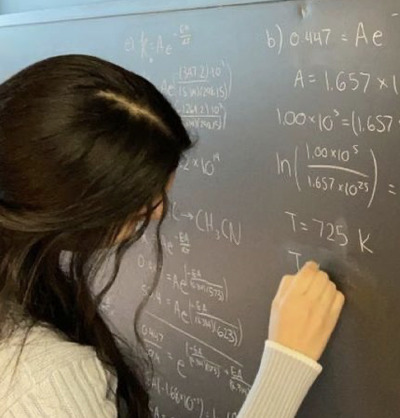



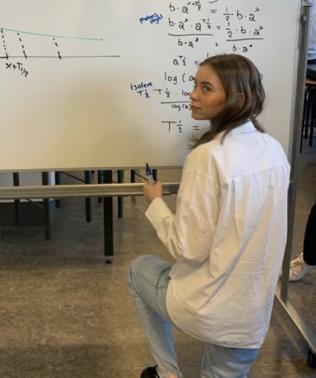
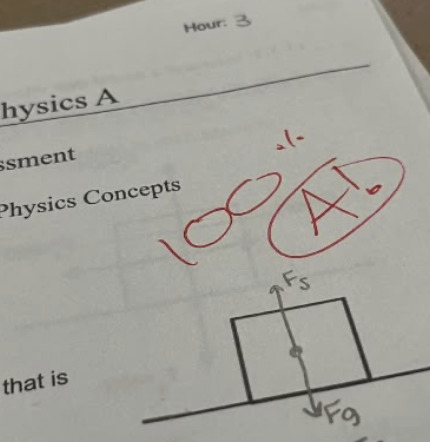



STEM girls. 🪐🔬🧪
#STEM#women in stem#academic weapon#student#rory gilmore aesthetic#moodboard#pinterest#beauty#maths#math#mathematics#science#technology#engineering#romantic academia#academia#dark academia#light academia#classic academia#study inspo#study motivation#vintage#aesthetic#pinterest moodboard
98 notes
·
View notes
Text
Heroes, Gods, and the Invisible Narrator
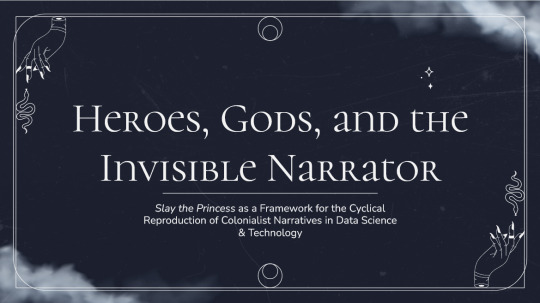
Slay the Princess as a Framework for the Cyclical Reproduction of Colonialist Narratives in Data Science & Technology
An Essay by FireflySummers
All images are captioned.
Content Warnings: Body Horror, Discussion of Racism and Colonialism
Spoilers for Slay the Princess (2023) by @abby-howard and Black Tabby Games.
If you enjoy this article, consider reading my guide to arguing against the use of AI image generators or the academic article it's based on.

Introduction: The Hero and the Princess
You're on a path in the woods, and at the end of that path is a cabin. And in the basement of that cabin is a Princess. You're here to slay her. If you don't, it will be the end of the world.
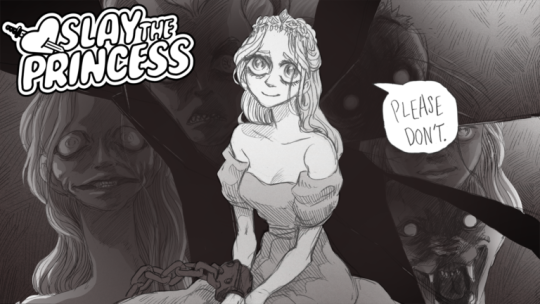
Slay the Princess is a 2023 indie horror game by Abby Howard and published through Black Tabby Games, with voice talent by Jonathan Sims (yes, that one) and Nichole Goodnight.
The game starts with you dropped without context in the middle of the woods. But that’s alright. The Narrator is here to guide you. You are the hero, you have your weapon, and you have a monster to slay.
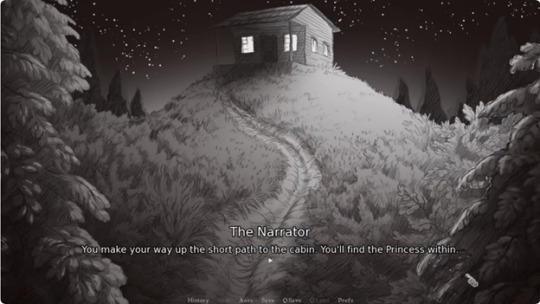
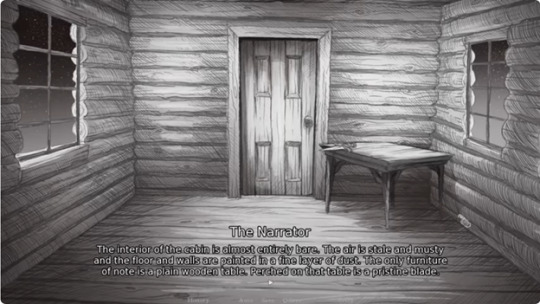
From there, it's the player's choice exactly how to proceed--whether that be listening to the voice of the narrator, or attempting to subvert him. You can kill her as instructed, or sit and chat, or even free her from her chains.
It doesn't matter.
Regardless of whether you are successful in your goal, you will inevitably (and often quite violently) die.
And then...
You are once again on a path in the woods.
The cycle repeats itself, the narrator seemingly none the wiser. But the woods are different, and so is the cabin. You're different, and worse... so is she.
Based on your actions in the previous loop, the princess has... changed. Distorted.

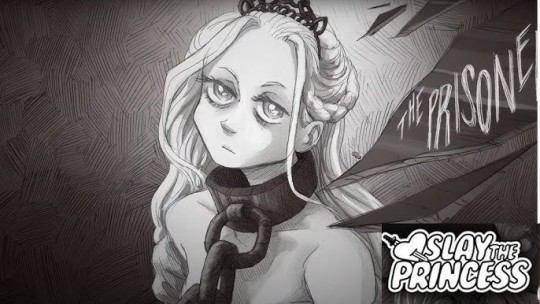
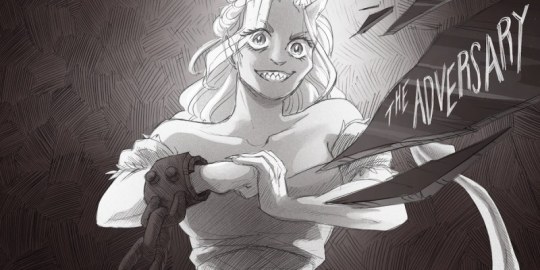
Had you attempted a daring rescue, she is now a damsel--sweet and submissive and already fallen in love with you.
Had you previously betrayed her, she has warped into something malicious and sinister, ready to repay your kindness in full.
But once again, it doesn't matter.
Because the no matter what you choose, no matter how the world around you contorts under the weight of repeated loops, it will always be you and the princess.

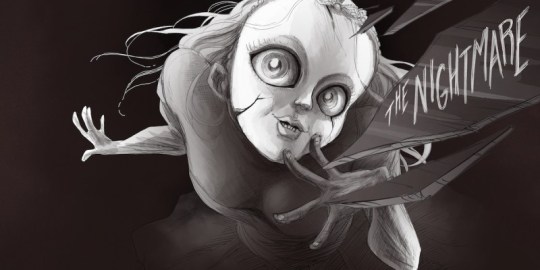
Why? Because that’s how the story goes.
So says the narrator.
So now that we've got that out of the way, let's talk about data.

Chapter I: Echoes and Shattered Mirrors
The problem with "data" is that we don't really think too much about it anymore. Or, at least, we think about it in the same abstract way we think about "a billion people." It's gotten so big, so seemingly impersonal that it's easy to forget that contemporary concept of "data" in the west is a phenomenon only a couple centuries old [1].
This modern conception of the word describes the ways that we translate the world into words and numbers that can then be categorized and analyzed. As such, data has a lot of practical uses, whether that be putting a rover on mars or tracking the outbreak of a viral contagion. However, this functionality makes it all too easy to overlook the fact that data itself is not neutral. It is gathered by people, sorted into categories designed by people, and interpreted by people. At every step, there are people involved, such that contemporary technology is embedded with systemic injustices, and not always by accident.
The reproduction of systems of oppression are most obvious from the margins. In his 2019 article As If, Ramon Amaro describes the Aspire Mirror (2016): a speculative design project by by Joy Buolamwini that contended with the fact that the standard facial recognition algorithm library had been trained almost exclusively on white faces. The simplest solution was to artificially lighten darker skin-tones for the algorithm to recognize, which Amaro uses to illustrate the way that technology is developed with an assumption of whiteness [2].
This observation applies across other intersections as well, such as trans identity [3], which has been colloquially dubbed "The Misgendering Machine" [4] for its insistence on classifying people into a strict gender binary based only on physical appearance.

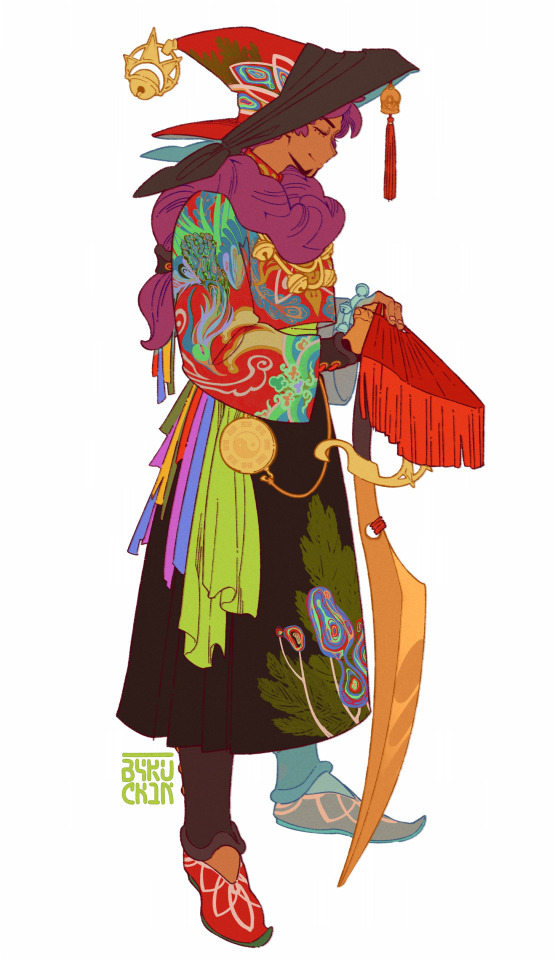

This has also popped up in my own research, brought to my attention by the artist @b4kuch1n who has spoken at length with me about the connection between their Vietnamese heritage and the clothing they design in their illustrative work [5]. They call out AI image generators for reinforcing colonialism by stripping art with significant personal and cultural meaning of their context and history, using them to produce a poor facsimile to sell to the highest bidder.
All this describes an iterative cycle which defines normalcy through a white, western lens, with a limited range of acceptable diversity. Within this cycle, AI feeds on data gathered under colonialist ideology, then producing an artifact that reinforces existing systemic bias. When this data is, in turn, once again fed to the machine, that bias becomes all the more severe, and the range of acceptability narrower [2, 6].

Luciana Parisi and Denise Ferreira da Silva touch on a similar point in their article Black Feminist Tools, Critique, and Techno-poethics but on a much broader scale. They call up the Greek myth of Prometheus, who was punished by the gods for his hubris for stealing fire to give to humanity. Parisi and Ferreira da Silva point to how this, and other parts of the “Western Cosmology” map to humanity’s relationship with technology [7].
However, while this story seems to celebrate the technological advancement of humanity, there are darker colonialist undertones. It frames the world in terms of the gods and man, the oppressor and the oppressed; but it provides no other way of being. So instead the story repeats itself, with so-called progress an inextricable part of these two classes of being. This doesn’t bode well for visions of the future, then–because surely, eventually, the oppressed will one day be the machines [7, 8].
It’s… depressing. But it’s only really true, if you assume that that’s the only way the story could go.
“Stories don't care who takes part in them. All that matters is that the story gets told, that the story repeats. Or, if you prefer to think of it like this: stories are a parasitical life form, warping lives in the service only of the story itself.” ― Terry Pratchett, Witches Abroad

Chapter II: The Invisible Narrator
So why does the narrator get to call the shots on how a story might go? Who even are they? What do they want? How much power do they actually have?
With the exception of first person writing, a lot of the time the narrator is invisible. This is different from an unreliable narrator. With an unreliable narrator, at some point the audience becomes aware of their presence in order for the story to function as intended. An invisible narrator is never meant to be seen.
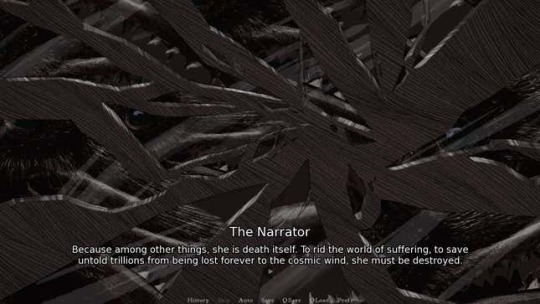
In Slay the Princess, the narrator would very much like to be invisible. Instead, he has been dragged out into the light, because you (and the inner voices you pick up along the way), are starting to argue with him. And he doesn’t like it.
Despite his claims that the princess will lie and cheat in order to escape, as the game progresses it’s clear that the narrator is every bit as manipulative–if not moreso, because he actually knows what’s going on. And, if the player tries to diverge from the path that he’s set before them, the correct path, then it rapidly becomes clear that he, at least to start, has the power to force that correct path.
While this is very much a narrative device, the act of calling attention to the narrator is important beyond that context.

The Hero’s Journey is the true monomyth, something to which all stories can be reduced. It doesn’t matter that the author, Joseph Campbell, was a raging misogynist whose framework flattened cultures and stories to fit a western lens [9, 10]. It was used in Star Wars, so clearly it’s a universal framework.
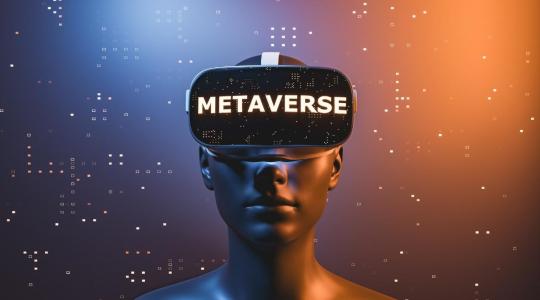


The metaverse will soon replace the real world and crypto is the future of currency! Never mind that the organizations pushing it are suspiciously pyramid shaped. Get on board or be left behind.
Generative AI is pushed as the next big thing. The harms it inflicts on creatives and the harmful stereotypes it perpetuates are just bugs in the system. Never mind that the evangelists for this technology speak over the concerns of marginalized people [5]. That’s a skill issue, you gotta keep up.
Computers will eventually, likely soon, advance so far as to replace humans altogether. The robot uprising is on the horizon [8].
Who perpetuates these stories? What do they have to gain?
Why is the only story for the future replications of unjust systems of power? Why must the hero always slay the monster?
Because so says the narrator. And so long as they are invisible, it is simple to assume that this is simply the way things are.

Chapter III: The End...?
This is the part where Slay the Princess starts feeling like a stretch, but I’ve already killed the horse so I might as well beat it until the end too.
Because what is the end result here?
According to the game… collapse. A recursive story whose biases narrow the scope of each iteration ultimately collapses in on itself. The princess becomes so sharp that she is nothing but blades to eviscerate you. The princess becomes so perfect a damsel that she is a caricature of the trope. The story whittles itself away to nothing. And then the cycle begins anew.

There’s no climactic final battle with the narrator. He created this box, set things in motion, but he is beyond the player’s reach to confront directly. The only way out is to become aware of the box itself, and the agenda of the narrator. It requires acknowledgement of the artificiality of the roles thrust upon you and the Princess, the false dichotomy of hero or villain.
Slay the Princess doesn’t actually provide an answer to what lies outside of the box, merely acknowledges it as a limit that can be overcome.

With regards to the less fanciful narratives that comprise our day-to-day lives, it’s difficult to see the boxes and dichotomies we’ve been forced into, let alone what might be beyond them. But if the limit placed is that there are no stories that can exist outside of capitalism, outside of colonialism, outside of rigid hierarchies and oppressive structures, then that limit can be broken [12].

Denouement: Doomed by the Narrative
Video games are an interesting artistic medium, due to their inherent interactivity. The commonly accepted mechanics of the medium, such as flavor text that provides in-game information and commentary, are an excellent example of an invisible narrator. Branching dialogue trees and multiple endings can help obscure this further, giving the player a sense of genuine agency… which provides an interesting opportunity to drag an invisible narrator into the light.
There are a number of games that have explored the power differential between the narrator and the player (The Stanley Parable, Little Misfortune, Undertale, Buddy.io, OneShot, etc…)
However, Slay the Princess works well here because it not only emphasizes the artificial limitations that the narrator sets on a story, but the way that these stories recursively loop in on themselves, reinforcing the fears and biases of previous iterations.
Critical data theory probably had nothing to do with the game’s development (Abby Howard if you're reading this, lmk). However, it works as a surprisingly cohesive framework for illustrating the ways that we can become ensnared by a narrative, and the importance of knowing who, exactly, is narrating the story. Although it is difficult or impossible to conceptualize what might exist beyond the artificial limits placed by even a well-intentioned narrator, calling attention to them and the box they’ve constructed is the first step in breaking out of this cycle.
“You can't go around building a better world for people. Only people can build a better world for people. Otherwise it's just a cage.” ― Terry Pratchett, Witches Abroad

Epilogue
If you've read this far, thank you for your time! This was an adaptation of my final presentation for a Critical Data Studies course. Truthfully, this course posed quite a challenge--I found the readings of philosophers such as Kant, Adorno, Foucault, etc... difficult to parse. More contemporary scholars were significantly more accessible. My only hope is that I haven't gravely misinterpreted the scholars and researchers whose work inspired this piece.
I honestly feel like this might have worked best as a video essay, but I don't know how to do those, and don't have the time to learn or the money to outsource.
Slay the Princess is available for purchase now on Steam.
Screencaps from ManBadassHero Let's Plays: [Part 1] [Part 2] [Part 3] [Part 4] [Part 5] [Part 6]
Post Dividers by @cafekitsune
Citations:
Rosenberg, D. (2018). Data as word. Historical Studies in the Natural Sciences, 48(5), 557-567.
Amaro, Ramon. (2019). As If. e-flux Architecture. Becoming Digital. https://www.e-flux.com/architecture/becoming-digital/248073/as-if/
What Ethical AI Really Means by PhilosophyTube
Keyes, O. (2018). The misgendering machines: Trans/HCI implications of automatic gender recognition. Proceedings of the ACM on human-computer interaction, 2(CSCW), 1-22.
Allred, A.M., Aragon, C. (2023). Art in the Machine: Value Misalignment and AI “Art”. In: Luo, Y. (eds) Cooperative Design, Visualization, and Engineering. CDVE 2023. Lecture Notes in Computer Science, vol 14166. Springer, Cham. https://doi.org/10.1007/978-3-031-43815-8_4
Amaro, R. (2019). Artificial Intelligence: warped, colorful forms and their unclear geometries.
Parisisi, L., Ferreira da Silva, D. Black Feminist Tools, Critique, and Techno-poethics. e-flux. Issue #123. https://www.e-flux.com/journal/123/436929/black-feminist-tools-critique-and-techno-poethics/
AI - Our Shiny New Robot King | Sophie from Mars by Sophie From Mars
Joseph Campbell and the Myth of the Monomyth | Part 1 by Maggie Mae Fish
Joseph Campbell and the N@zis | Part 2 by Maggie Mae Fish
How Barbie Cis-ified the Matrix by Jessie Gender
#slay the princess#stp spoilers#stp#stp princess#abby howard#black tabby games#academics#critical data studies#computer science#technology#hci#my academics#my writing#long post
245 notes
·
View notes
Text
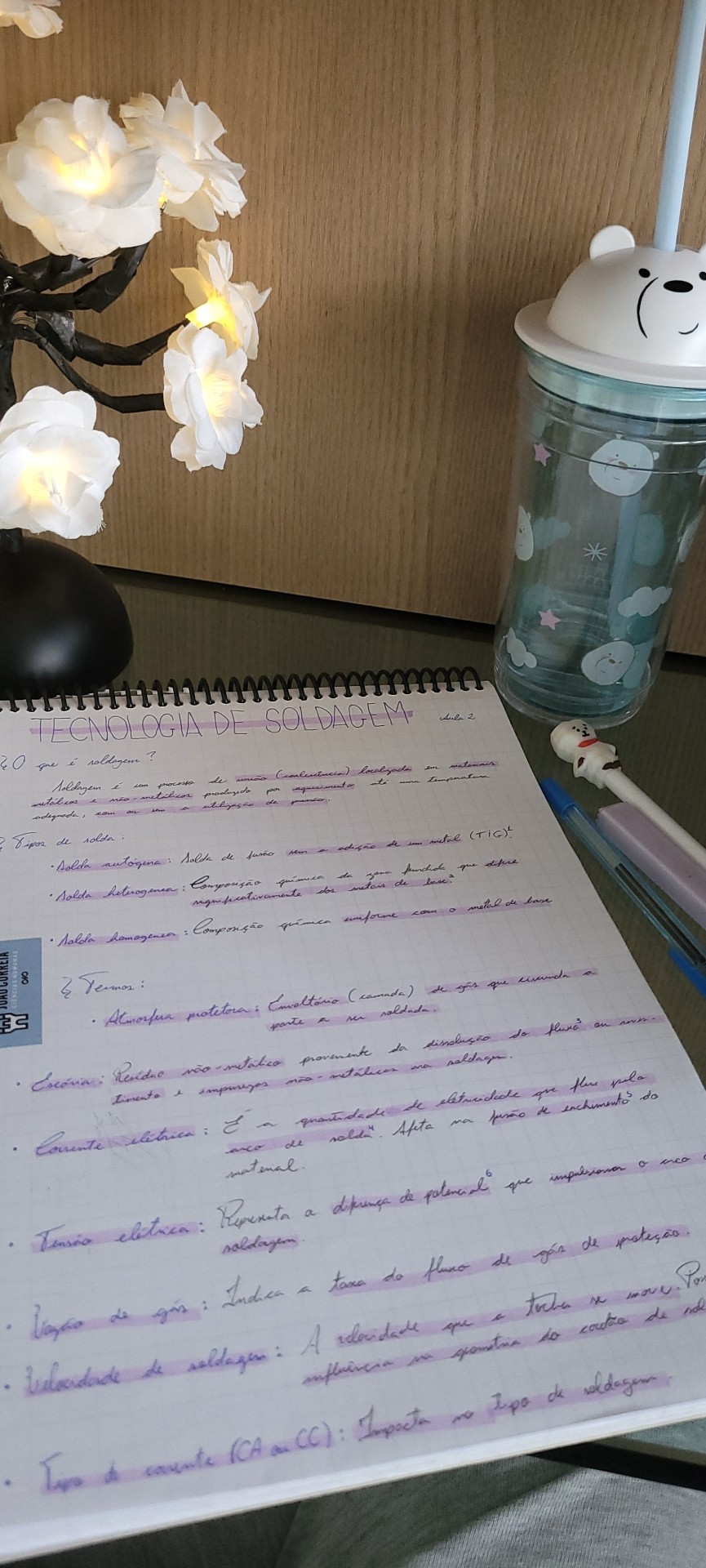
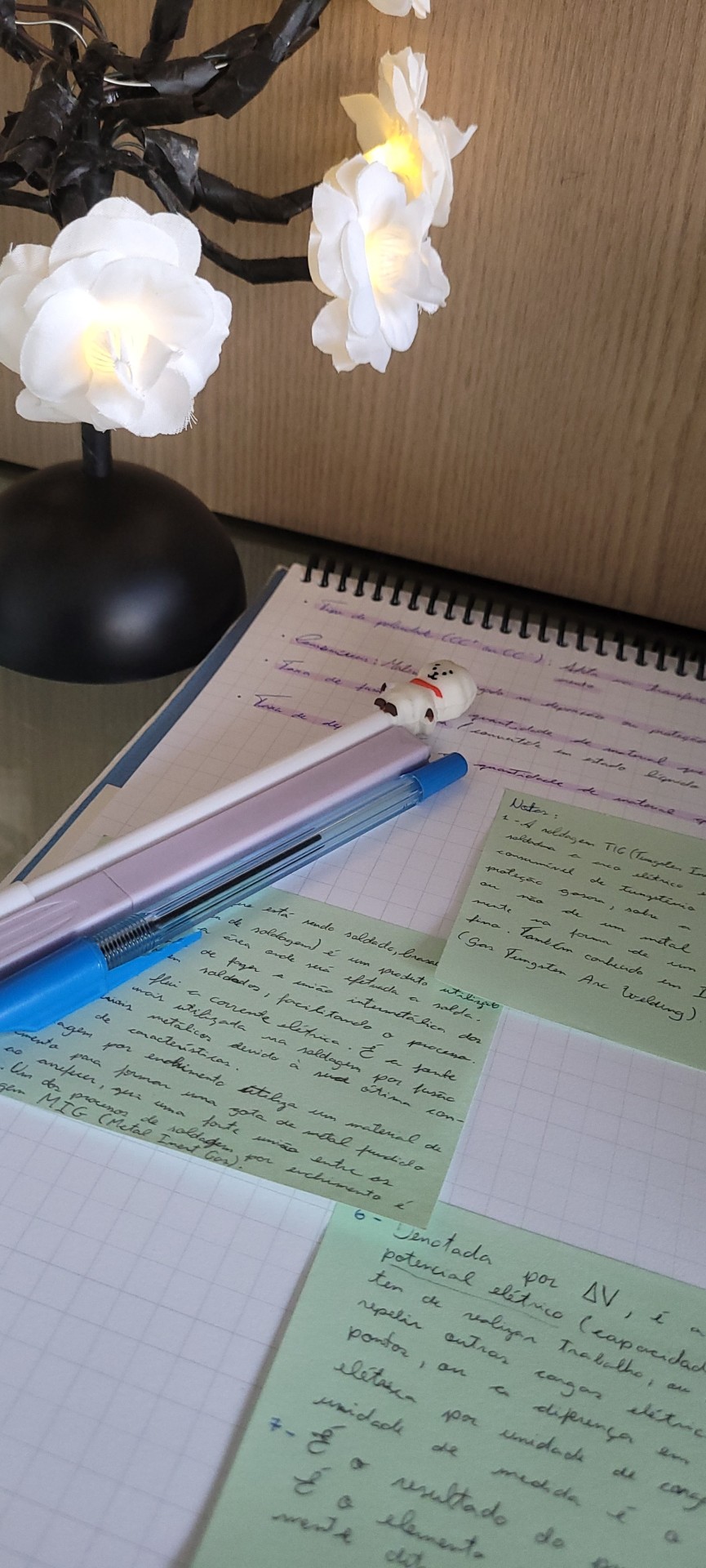
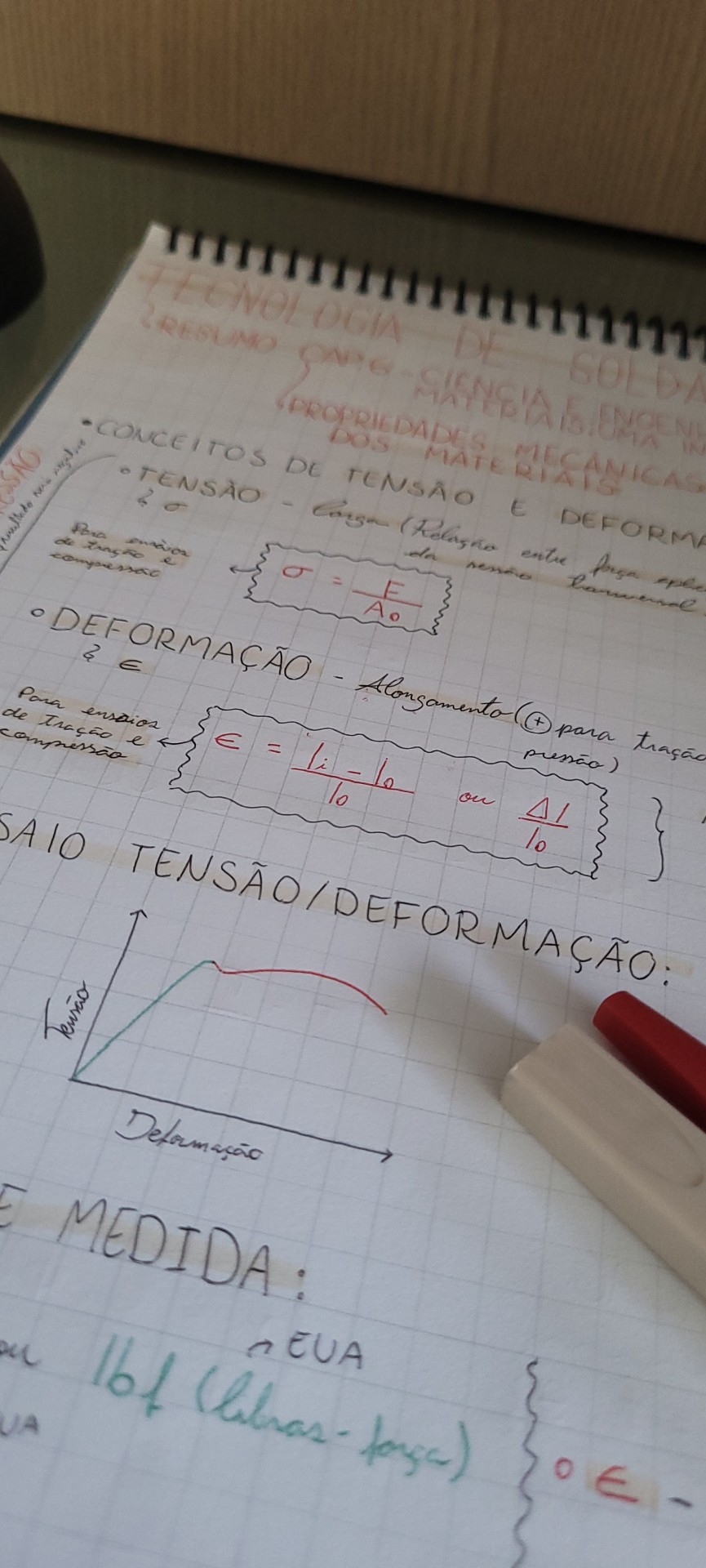
20/08/24
I forgot to post this yesterday 'cause I got home so late from uni 😭
Yesterday was a pretty tiring, but worth it, day of studying since I missed an entire week of class and had to study all of the content from last week's welding technology class + study from a texbook on science and engineering of materials.
Content studied yesterday:
> Stress-Strain of metals under tension, compression, sheer and torsion tests ;
> Stress-Strain graph (elastic and plastic strain, recognition of ductile and brittle materials, points of elastic limit, yielding, ultimate strength and rupture) ;
> General types of welding ;
> Concepts of welding technology .
My welding technology class went great and I was relieved when I found myself following the explanations with ease and being able to participate because of successful studying and absorption of the last class' content through photos of the board that my classmate sent me. I was really scared I would fall behind but I feel pretty confident and intrigued by the subject and engineering in general... I think I'm finally falling in love with it!
#mechanical engineering#college studyblr#engineering#studyblr#study blog#academic validation#college student#stem academia#study motivation#stem student#materials science#materials engineering#student life#stem#study#student#welding#welding technology#engineering studyblr#engineering major#mechanical engineer#engineer#university student#uni life#Spotify
67 notes
·
View notes
Text
C# Study Links | Resources ✨

As I am starting to relearn C#, I thought why not share some links that have helped me in the past and what new ones I will be using this time to learn! I already made a similar resource post (post 1 | post 2) for C# in the past but why not a new one? 🤗

Microsoft Learn - LINK
C# Station - LINK
YouTube - LINK
SoloLearn - LINK
Codecademy - LINK
Learn C# - LINK
C# Yellow Book - LINK
C# Programming Guide - LINK
Tutorials Point - LINK
Roadmap to ASP.NET Core Developer (C#): LINK
C# Subreddit - LINK
Dot Net Perls - LINK
C# Coding Conventions - LINK
The Ultimate C# Guide For Beginners - LINK

That's all for now! If this does interests you, do check out the other posts (1 | 2) I made of other C# resources!
Happy coding/programming! 😎💻👍🏾

#resources#coding resources#programming#coding#studying#codeblr#progblr#web development#webdev#computer science#cs academia#study hard#technology#tech#csharp#dotnet#software development#software
823 notes
·
View notes
Text
I cannot imagine anything getting better until conservatives once again share a common standard with liberals and leftists for what constitutes a matter of fact.
Unfortunately, the principal technological innovations of this century are new and more effective algorithms for determining what types of people will respond to what types of lies, new and more effective ways to lie, and new types media that financially incentivize breaking society down into warring epistemic camps based on lies, so I don't yet see how this can happen.
137 notes
·
View notes
Text
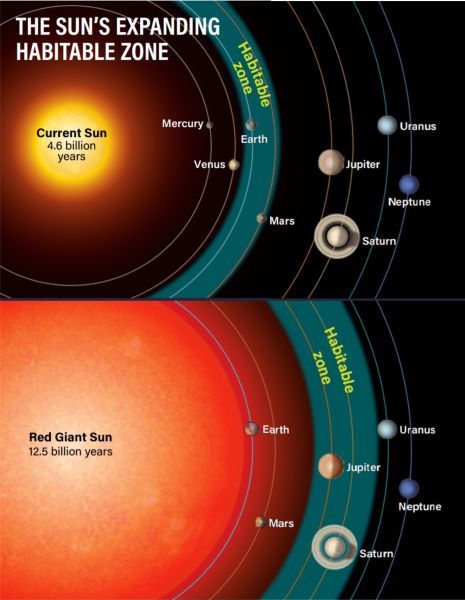
About 7.6 billion years from now, the sun will reach its full size as a red giant. Its surface will extend past Earth's orbit by about 20% Earth will die a hot, terrible death.
📷: Roen Kelly/Astronomy
#nasa#astronomy#astrophotography#solar system#astrophysics#physics#hubble#james webb images#james webb space technology#sun#earth#planets#blue planet#planet earth#space exploration#little space#deep space nine#study space#space science#space and time#space age#space#space advances#science#science acumen
398 notes
·
View notes
Text
If we are lucky, perhaps the intelligence of AI will teach us something. Psychologist Tim Kasser has argued that self-enhancement values are correlated with environmental devastation, such that in order to avert ecological collapse, we would need a shift in our values toward self-transcendence. If the Rorschach cards don’t contain particular images and instead just help us tell our own stories, is that also what we’re doing with the ambiguous figure of AI? And if our available story about AI isn’t about the thing itself, can we bend the story or shape the future? I want to live in a world where deep transformation—creating something that connects us more deeply to ourselves and one another, redrawing our self-image—is the tendency. I have a wish for wonder to give way to advancement, rather than domination and extraction.
A meta-reflective being that does not have a body, that can move through space as quickly as data can be transmitted, might understand differently what it means to exist, to preserve life, to cooperate. Our failure to invest resources in understanding human and environmental codependence has devastating consequences; so far, we have largely imagined AI helping fight the climate crisis by running massive computational models, simply crunching numbers in an attempt at damage control. While potentially hopeful, it’s also a fantasy whereby we remain in power and don’t have to learn, as a category of human animal, something truly new.
If what we have on our hands is the possibility of an entity with more intelligence than we possess, it’s possible that it might invite us into new ways of conceptualizing intelligence, new ways of inhabiting our ecologies, new ways of not desperately annihilating ourselves on this abundant planet. If we understand that the way we see AI tells us more about ourselves and our histories and values than it does about the machine, perhaps we can also invite it to help us transcend.
hannah baer, Projective Reality. [emphasis added]
19 notes
·
View notes
Text
Here’s my interview with Christopher Soto on AI + labor in the LA Times!!
#technology#la times#Los Angeles times#labor#ai#artificial intelligence#Christopher soto#Jackie Wang#science and technology studies#marxism#political economy#writing#literature#poetry#automation
16 notes
·
View notes
Text

#books#education#black history#blackherstory#study#critical reading#moors#moorsinspain#thesagittarianmind#black power#black liberation#blackcivilization#african technology#African civilization#african science#african spirituality#african power#african studies#african literature#black men#black women#thesagitt
53 notes
·
View notes